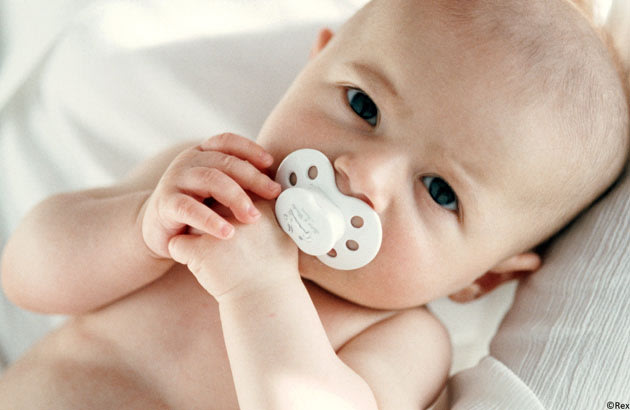
Using dummies prevents babies
from mimicking facial expressions, psychologists say.
They are recommended to reduce
the risk of infant cot death – but now parents have yet another dilemma to deal
with as scientists claim “dummies may stunt baby boys’ emotional development”. According
to new research by American psychologists, heavy use of pacifiers in infancy
can be linked to poor emotional maturity later. The study, published today,
suggests that dummies prevent babies from mimicking the expressions of the
people around them – a vital learning tool.
Surprisingly, there were only
found to be ill effects among young boys and not young girls, with six and seven-year-old
boys who spent more time with dummies in their mouths as babies “less likely to
mimic the emotional expressions of faces peering out from a video”. Meanwhile
college-aged men who reported heavy pacifier use as infants scored lower than
their peers in empathy tests.
Psychology professor and lead
author of the study Paula Niedenthal said the gender difference could be
because girls develop earlier, or boys are simply more vulnerable than girls
and so disrupting their use of facial mimicry is more detrimental for them. She
said the study had important implications for the continued use of dummies.
Despite cot death charities’ advice that dummy use can lower the risk of
so-called Sudden Infant Death Syndrome, the World Health Organisation and
American Academy of Paediatrics already call for “limited” pacifier use to help
promote breastfeeding and because of links to ear infections and dental
abnormalities.
Prof Niedenthal, who carried out
the research for the University of Wisconsin-Madison, said: "By reflecting
what another person is doing, you create some part of the feeling yourself. "That's
one of the ways we understand what someone is feeling -- especially if they
seem angry, but they're saying they're not; or they're smiling, but the context
isn't right for happiness."
Mimicry is an important tool for
babies, she added: "We can talk to infants, but at least initially they
aren't going to understand what the words mean. So the way we communicate with
infants at first are by using the tone of our voice and our facial
expressions." She said the effect was similar to that seen in studies of
patients receiving Botox injections – where users experience a narrower range
of emotions and often have trouble identifying the emotions behind expressions
on other faces. Added Niedenthal: "That work got us thinking about
critical periods of emotional development, like infancy.
“What if you always had something
in your mouth that prevented you from mimicking and resonating with the facial
expression of somebody?" She said another reason for the girl-boy divide
could be that parents are more likely to encourage being “emotional” in girls:
"Since girls are not expected to be unemotional, they're stimulated in
other ways. But because boys are desired to be unemotional, when you plug them
up with a pacifier, you don't do anything to compensate and help them learn
about emotions."
She conceded the study would
prove controversial: "Parents hate to have this discussion. They take the
results very personally. Now, these are suggestive results, and they should be
taken seriously. But more work needs to be done." She said it was
important to discover next “how much [dummy use] is bad and when?" adding:
"We already know from this work that nighttime pacifier use doesn't make a
difference, presumably because that isn't a time when babies are observing and
mimicking our facial expressions anyway. It's not learning time."
But for now she said she would
advise parents to be cautious of using the dummy too often: "I'd just be
aware of inhibiting any of the body's emotional representational systems."
Yahoo Lifestyle
No comments:
Post a Comment